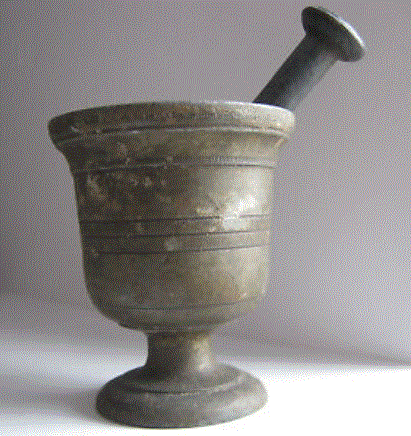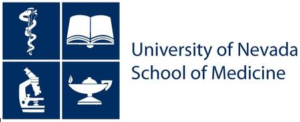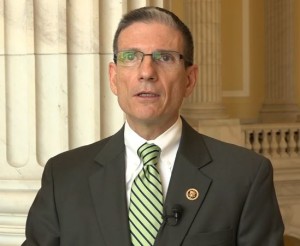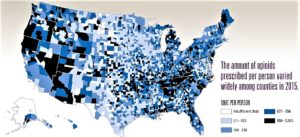- What’s Causing America’s Rural Health Insurance Crisis? (realclearhealth.com)
...numerous rural health insurance markets have teetered on the brink of collapse. Rural areas have long posed a special challenge to health care policymakers, but a poorly-designed system of subsidies for rural hospital care has turned this into a crisis. It has fostered a rural hospital market structure that has crippled the ability of private insurers to negotiate reasonable payment rates, without fully securing the provision of essential care. By refocusing federal assistance on emergency care, it should be possible to restore rural insurance markets to health, while improving the affordability and access to care available to residents...MedPAC (Medicare Payment Advisory Commission)...has argued that CAHs (Critical Access Hospitals) are “not the best solution”, as “many small towns do not have the population to support efficient, high-quality inpatient services.” MedPAC has proposed...lump-sum payments to cover the overheads needed to provide 24/7 emergency care at geographically isolated outpatient-only facilities and suggested that Medicare reimbursement be extended to care provided by standalone emergency departments...This would focus subsidies to secure emergency services, which must be delivered locally, while leaving elective care to be located efficiently according to market demand. Such a reform would give emergency rural hospital care a firmer financial foundation while restoring payment rules for elective care that would make it possible for insurers to re-enter the rural marketplace.
- 3 Reasons Why USP Supports Pharmacist Health Care Provider Status Legislation (ncpanet.org)
For people living in rural areas of the U.S., access to health care providers can be a serious challenge. Pharmacists can be part of the solution. And in a welcome show of bipartisanship, Republicans and Democrats in Congress are co-sponsoring legislation that can help...The Pharmacy and Medically Underserved Areas Enhancement Act...would include pharmacists on the list of recognized health care providers that can be reimbursed by Medicare for providing much needed patient care in underserved areas. USP supports this legislation as a major step forward in improving health care. Here are three reasons why:
- Pharmacists are highly trained health care professionals
- Pharmacists are easily accessible to patients
- Pharmacists improve health care
- Medicare Plan on Payment for Cancer Drugs Stirs Battle (dddmag.com)
A Medicare proposal to test new ways of paying for chemotherapy and other drugs given in a doctor's office has sparked a furious battle, and cancer doctors are demanding that the Obama administration scrap the experiment...At issue are some of the most expensive drugs for treating life-changing diseases...Medicare now pays doctors and hospital outpatient clinics the average sales price of a drug, plus a 6 percent add-on, somewhat reduced by federal budget cuts. Naturally, 6 percent of a $15,000 drug is more than 6 percent of a $3,000 drug. But does that influence doctors' decisions, raising costs for the government as well as those on Medicare?... The new formula...combines a 2.5 percent add-on with a flat fee for each day the drug is administered...The experiment could become permanent policy if it lowers costs while maintaining quality...Specialist doctors, drugmakers and some patient advocacy groups are trying to compel Medicare to drop the plan. Primary care doctors, consumer groups representing older people, and some economic experts want the experiment to move ahead...Opponents say if that happens, cancer patients will be forced to go to outpatient hospital clinics instead of their local cancer doctor for the latest and most effective drugs. That's because smaller, doctor-owned clinics may no longer be able to afford the upfront costs of cutting-edge medications. In rural areas, patients may have to travel long distances to get to a hospital clinic...
- China economy not the main culprit in pharma slowdown, FT says (fiercepharmaasia.com)
If drugmakers foreign and domestic are counting on a return to reaping big benefits once China bounces back from its recent economic decline, they may wish to take another look. The economy may not be the problem; it is in the design of the nation's huge healthcare system…That is the conclusion of a lengthy look at the healthcare situation, including pharmaceuticals, in China by London's Financial Times…China has been engaged in a huge expansion of its healthcare system for the past several years, aimed primarily at getting care to all parts of the vast country, primarily its rural parts… while demand was increasing for pharmaceuticals, medical devices and other healthcare items, China needed to rein in the costs of the system and operate it more efficiently…China especially saw a need to get more bang from its $150 billion spent on pharmaceuticals at the same time a new government focused on ending corruption, which in healthcare centered on a hospital system that relied on drug sales for adequate income…“the whole health system is unbalanced,"…
- Project ECHO Expands Rural and Urban Clinics in Nevada (med.unr.edu)
Thousands of Nevadans have limited access to specialty health care, including the nearly 300,000 living in rural areas and many others living in urban centers who have no health insurance or Medicaid coverage. To help remedy this issue, the University of Nevada, Reno School of Medicine Office of Statewide Initiatives has expanded Project ECHO (Extension for Community Healthcare Outcomes) with new clinics in cardiology, pediatric endocrinology, medication assisted therapy for substance use disorder, as well as a unique school-based behavioral health program...Project ECHO uses teleconferencing technology to connect specialists at UNR Med with primary care clinicians in rural and urban under-served communities...These virtual clinics give primary care physicians, advanced practice registered nurses, physician assistants and other professionals the tools and resources to deliver high quality care in their communities...The impact is enormous...The work...has been transformative in providing critical rural outreach and health care to patients who otherwise would be without. Their work is changing the face of rural health care in the state of Nevada and is a model for delivering access to health care in efficient and affordable ways...
- Zipline raises $25M as it prepares to launch drone delivery medical supply service in U.S. (medcitynews.com)
Zipline, a San Francisco Bay-area company that’s using drones to deliver medical supplies such as blood, (and soon, medication and vaccines) to rural areas and in developing countries, has closed a $25 million Series B round...The funding comes at a time when Zipline is expanding its business in Rwanda and preparing to launch in the U.S...The drone business is planning to launch its drone delivery service in the U.S. next year, as part of a partnership with the White House and the U.S. Federal Aviation Administration...Zipline has been ramping up its medical drone business in Rwanda. The company signed a one-year partnership with Rwanda’s government to deliver blood for transfusions to the western half of the country and plans to start deliveries in the eastern half of Rwanda by the end of the year.
- Congressman Heck pushing for EMS to continue to use controlled substances (kolotv.com)
A Nevada Congressman is pushing to make sure emergency medical teams retain the ability to administer life-saving medicine in the field. Congressman Joe Heck says the Drug Enforcement Agency wants certain drugs to be used only in hospitals, because of fears over the accountability of controlled substances and how they are administered. Heck says paramedics should be able to do the job they’re trained to do...current law states that medical directors can create standing orders that apply to emergency situations. If a patient meets certain criteria, a substance can be administered in the field...He says the DEA wants to take that ability away from paramedics, saying they can no longer use controlled substances, even under these standing orders from medical directors. Heck says this will hinder a paramedic’s ability to give quality care to a patient. He says this is an issue especially in rural areas, where a patient could be in an ambulance for a long time without proper care..."There’s a way to make sure that we can ensure the accountability of these controlled substances while still allowing the paramedics to administer these life-saving materials...this bill will specify the protocol for a physician creating a standing order. The bill also says standing orders must be made available for Attorney General Loretta Lynch at her request...
- Opioid prescribing is falling in the US, but not everywhere (philly.com)
Centers for Disease Control and Prevention...Prescriptions per capita, measured in morphine equivalents to account for various strengths and drug types, have declined steadily since their 2010 peak...Half the nation’s counties saw a decline (a quarter were stable) from 2010 to 2015. But there was wide variation, with providers in the highest-prescribing counties writing scripts for six times more opioids per resident than those in the lowest-prescribing counties...Nationally, the epidemic has been driven by high rates of addiction in more rural and white areas...Looking at county-level prescribing data helped CDC researchers to shed more light on some patterns of the painkiller epidemic. Counties with high rates tended to:
- Contain small cities or large towns (perhaps with pharmacies that drew residents from rural areas)
- Have higher percentages of white residents
- Have more dentists and primary-care physicians per capita
- Have more residents who were uninsured or unemployed
- Have more people with diabetes, arthritis, or a disability
But county-by-county analyses also illustrated how much is unknown about where and why opioids are given.
- California Mulls Coverage of Comprehensive Medication Management (ashp.org)Medi-Cal: comprehensive medication management (leginfo.legislature.ca.gov)
A bill to have the nation's largest Medicaid program cover comprehensive medication management services by pharmacists and primary care physicians emerged from a committee hearing on April 5...In the past few years, we have added millions of Californians into Medi-Cal, making the effective management of the quality and cost of care an absolute necessity...CMM is a smart, important innovation to help meet these goals...CMM, according to California Assembly Bill 2084, is "the process of care that ensures each beneficiary's medications...are individually assessed to determine that each medication is appropriate for the beneficiary, effective for the medical condition, and safe given the comorbidities and other medications being taken, and [that] all medications are able to be taken by the patient as intended."...Absent from the bill, however, was any requirement for Medi-Cal to pay pharmacists for providing healthcare services or for Medi-Cal managed care plans to credential pharmacists as providers...pharmacists' strongest support comes from the rural areas of California, where access to healthcare is more difficult than in the urban centers of the state...
- Make Doctor’s Licenses Like Driver’s Licenses? Medical Groups Say No (realclearhealth.com)
A doctor licensed in one state who wants to practice in another still needs a license from the other state. That’s a costly and time-consuming process, especially in an era when many health plans and their employees operate across state lines and the use of telemedicine, in which patients and their providers interact from a distance, is growing...But the state licensing situation for doctors...is starting to change...Doctors...are creating their own multistate compact...it will provide an expedited application process to get licenses in other states...The main obstacle to portability for all the professions is that they are regulated by the states, each of which is free to demand its own qualifications — and collect its own fees — for licensing. To achieve portability, states either have to standardize their licensing requirements or agree to live with the differences, so long as there are some baseline qualifications accepted by all...doctors have created a compact that the Federation of State Medical Boards says will offer an expedited and cheaper process for getting a license to practice in member states. So far, 11 states have joined the compact, with nearly an equal number expected to join next year. Telemedicine advocates and doctors who use telemedicine say the doctors’ portability model, which still requires full licensure in every state, will impede the spread of telemedicine, particularly in rural areas that have a shortage of doctors.










